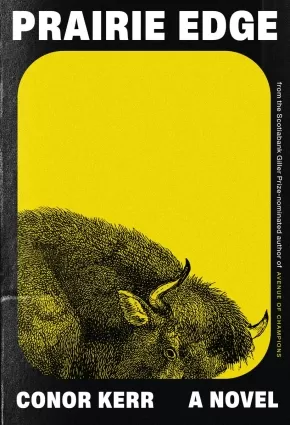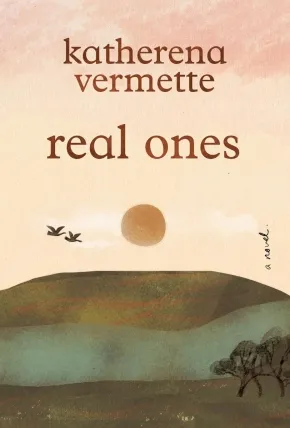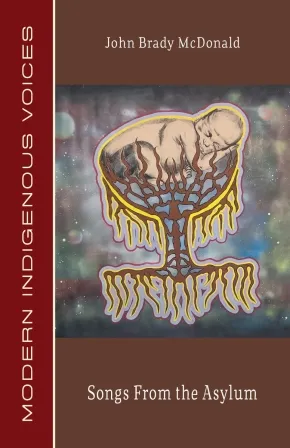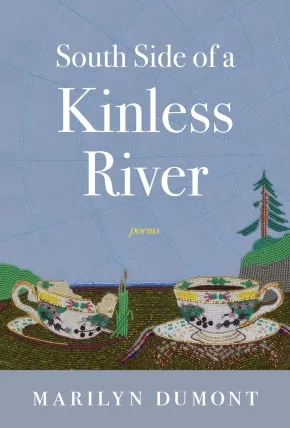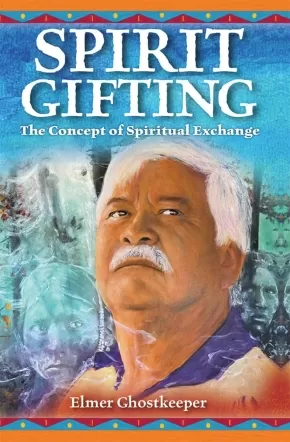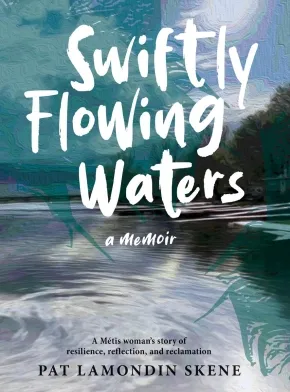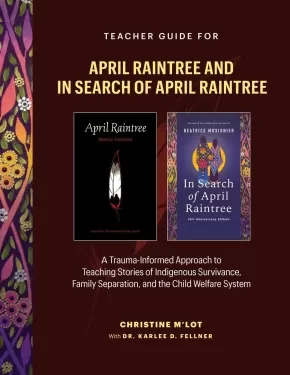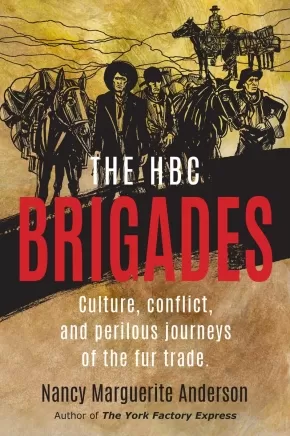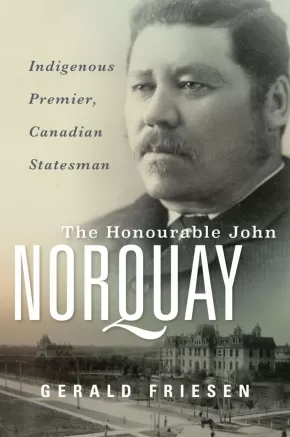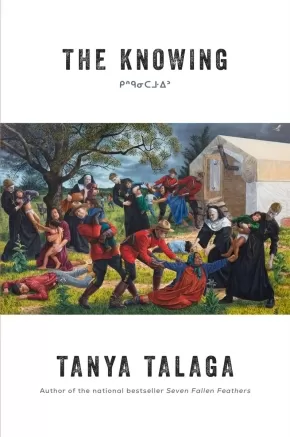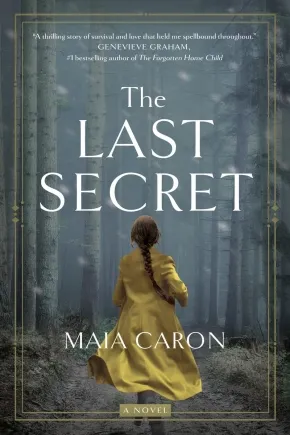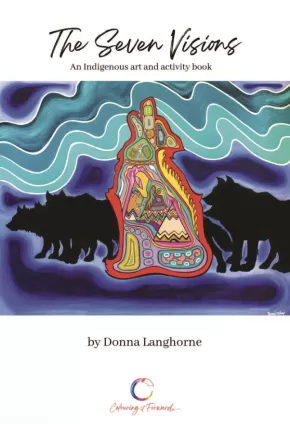
Métis
46
-
60
of
212 Results;
Sort By
Go To
of 15
Prairie Edge: A Novel
$24.95
Format:
Paperback
Text Content Territories:
Indigenous Canadian; Métis;
Reading Level: N/A
ISBN / Barcode: 9780771003578
Synopsis:
Synopsis:
The Giller Prize-longlisted author of Avenue of Champions returns with a frenetic, propulsive crime thriller that doubles as a sharp critique of modern activism and challenges readers to consider what “Land Back” might really look like.
Meet Isidore “Ezzy” Desjarlais and Grey Ginther: two distant Métis cousins making the most of Grey’s uncle’s old trailer, passing their days playing endless games of cribbage and cracking cans of cheap beer in between. Grey, once a passionate advocate for change, has been hardened and turned cynical by an activist culture she thinks has turned performative and lazy. One night, though, she has a revelation, and enlists Ezzy, who is hopelessly devoted to her but eager to avoid the authorities after a life in and out of the group home system and jail, for a bold yet dangerous political mission: capture a herd of bison from a national park and set them free in downtown Edmonton, disrupting the churn of settler routine. But as Grey becomes increasingly single-minded in her newfound calling, their act of protest puts the pair and those close to them in peril, with devastating and sometimes fatal consequences.
For readers drawn to the electric storytelling of Morgan Talty and the taut register of Stephen Graham Jones, Conor Kerr’s Prairie Edge is at once a gripping, darkly funny caper and a raw reckoning with the wounds that persist across generations.
Additional Information
272 pages | 5.50" x 8.25" | Paperback
real ones: a novel (HC) (2 in Stock)
$35.00
Format:
Hardcover
Text Content Territories:
Indigenous Canadian | Métis|
Reading Level: N/A
ISBN / Barcode: 9780735247505
Synopsis:
Synopsis:
From the author of the nationally bestselling Strangers saga comes a heartrending story of two Michif sisters who must face their past trauma when their mother is called out for false claims to Indigenous identity.
June and her sister, lyn, are NDNs—real ones.
Lyn has her pottery artwork, her precocious kid, Willow, and the uncertain terrain of her midlife to keep her mind, heart and hands busy. June, a Métis Studies professor, yearns to uproot from Vancouver and move. With her loving partner, Sigh, and their faithful pup, June decides to buy a house in the last place on earth she imagined she’d end up: back home in Winnipeg with her family.
But then into lyn and June’s busy lives a bomb drops: their estranged and very white mother, Renee, is called out as a “pretendian.” Under the name (get this) Raven Bearclaw, Renee had topped the charts in the Canadian art world for winning awards and recognition for her Indigenous-style work.
The news is quickly picked up by the media and sparks an enraged online backlash. As the sisters are pulled into the painful tangle of lies their mother has told and the hurt she has caused, searing memories from their unresolved childhood trauma, which still manages to spill into their well-curated adult worlds, come rippling to the surface.
In prose so powerful it could strike a match, real ones is written with the same signature wit and heart on display in The Break, The Strangers and The Circle. An energetic, probing and ultimately hopeful story, real ones pays homage to the long-fought, hard-won battles of Michif (Métis) people to regain ownership of their identity and the right to say who is and isn’t Métis.
Reviews
“With the same artistry and open heart that vermette’s character lyn practices in throwing and displaying her pottery, vermette has crafted real ones to explore—in real time—the traumatic outward rippling effect of a mother’s ethnic fraud on all her relations.” —Michelle Good, author of Five Little Indians and Truth Telling
“A brilliant novel, infused with anger and rich with empathy. In real ones, katherena vermette holds a mirror up to an issue that Indigenous and non-Indigenous communities are all grappling with—the rise of false claims to Indigenous identity. Vermette tells this story like no one else can. By focusing on the relationship between sisters June and lyn (who are Métis on their father’s side) following the public discovery of their own mother’s false claims, vermette offers up an understanding of the way the phenomenon reverberates at the personal and political levels. A healing and eye-opening story, real ones is a must-read.”—Michelle Porter, author of A Grandmother Begins the Story
“With conviction and compassion, vermette shines a light on pretendianism—motivations, tangled emotions, far-reaching consequences—and re-centres collective Métis identity and sovereignty.”—Chantal Fiola, author of Returning to Ceremony: Spirituality in Manitoba Métis Communities
Additional Information
320 pages | 5.50" x 8.25" | Hardcover
Songs From the Asylum
$19.95
Format:
Paperback
Text Content Territories:
Indigenous Canadian; Métis; First Nations; Cree (Nehiyawak); Plains Cree; Muskeg Lake Cree Nation;
Reading Level: N/A
ISBN / Barcode: 9781772312379
Synopsis:
Synopsis:
For over twenty years, Nehiyawak-Metis artist and author John Brady McDonald’s day job has been working with youth. Over half of that time was spent as a Frontline Youth Outreach Worker on the streets of Prince Albert, Saskatchewan. During that time, John would write down his thoughts and feelings on scraps of paper and in little black hardcover notebooks, chronicling the struggles and traumas of the youth he worked with and which he himself had also experienced. Never being quite the right fit for his other poetry books, John took these poems and hid them away for years, until now. Recently rediscovered in his archives, John has compiled them, using a 54-year-old typewriter, into a work which gives voice to the experiences and resilience of those youth, along with his own experiences, thoughts and recollections of a poet in the midst of a turbulent moment in time amongst the concrete and asphalt of the city.
Educator & Series Information
This book is part of the Modern Indigenous Voices series.
Additional Information
88 pages | 5.50" x 8.50" | Paperback
South Side of a Kinless River
$23.95
Format:
Paperback
Reading Level: N/A
ISBN / Barcode: 9781771316316
Synopsis:
Synopsis:
A nuanced, relational, and community-minded new book from one of Canada's preeminent poets.
South Side of a Kinless River wrestles with concepts of Métis identity in a nation and territory that would rather erase it. Métis identity, land loss, sexual relationships between Indigenous women and European men, and midwifery by Indigenous women of the nascent settler communities figure into these poems. They add up to a Métis woman's prairie history, one that helps us feel the violence in how those contributions and wisdoms have been suppressed and denied.
Reviews
"Each poem is an anthem, every page showcasing the talent and necessity of this incredible poetic voice. Dumont brings the Métis tone, cadence and intricate stitch-work into all she creates." - Cherie Dimaline, author of The Marrow Thieves and Empire of the Wild
"The voice of this Métis woman is as loving, tender and humane, as it is powerful, satirical and political..."- Rita Bouvier, author of a beautiful rebellion
Additional Information
80 pages | 5.75" x 8.50" | Paperback
Spirit Gifting: The Concept of Spiritual Exchange
$14.95
Format:
Paperback
Text Content Territories:
Indigenous Canadian; First Nations; Cree (Nehiyawak); Métis;
Reading Level: N/A
ISBN / Barcode: 9781990321313
Synopsis:
Synopsis:
Respected Elder Elmer Ghostkeeper takes us on a journey of rediscovery where we gain a new perspective on the world we take for granted. Ghostkeeper tells the story of his attempt to reclaim and reawaken to his Indigenous worldview on his own terms with his traditional knowledge intact.
As he returns to his roots, he shares the series of natural signs that have guided his family through time and shaped their ceremonial activities in living with the land rather than off the land. He reveals how to follow the natural ebb and flow of nature with its spiritual exchange of precise and well-thought-out duties and giftings. As a fluent Cree speaker, he names the Cree words for the 12 moons of the year, setting out these traditional duties and preparations. His writing is a breath of fresh reality and air—air free of exhaust and spiritual exhaustion—air filled with spiritual inspiration.
Additional Information
128 pages | 5.25" x 8.25" | Paperback
Swiftly Flowing Waters: A Metis Woman's Story of Resilience, Reflection and Reclamation
$22.95
Format:
Paperback
Text Content Territories:
Indigenous Canadian | Métis|
Reading Level: N/A
ISBN / Barcode: 9781738898299
Synopsis:
Synopsis:
Pat spent a lifetime catching up to who she wanted to be. Growing up in a Métis family, it would take her decades to shed the prejudice and shame of who she was, to find her indigeneity. After escaping an alcoholic relationship, she achieved corporate success in a man’s world, switched gears to become an author of children’s books, survived breast cancer, and accepted her husband's wish to participate in MAID. These challenges are all part of Pat’s inspiring story.
Swiftly Flowing Waters is a raw reflection of the many experiences women quietly go through in life. It’s a story about finding courage, overcoming obstacles, and the discovery of joy and fulfilment along the way.
Reviews
"No one could tell this compelling story with such precision if they had not lived it. Pat's journey, as she chronicles it from four to seventy years of age, deserves to be shared - for her Metis legacy, for her ancestors who could not speak, and for her descendants who need to know the unique truth of their origins. This memoir provides an anchor of truth that is honest and unashamed. We need more courageous authors like Pat Lamondin Skene." - Fern Perkins, Registered Citizen of Metis Nation Greater Victoria and Metis Nation BC; Educator, University of Victoria and Greater Victoria School District (retired)
Additional Information
216 pages | 7.25" x 10.25" | Paperback
Teacher Guide for In Search of April Raintree and April Raintree: A Trauma-Informed Approach to Teaching Stories of Indigenous Survivance, Family Separation, and the Child Welfare System
$25.95
Format:
Coil Bound
Text Content Territories:
Indigenous Canadian; Métis;
ISBN / Barcode: 9781774920947
Synopsis:
Synopsis:
First published in 1983, In Search of April Raintree is a Canadian classic that presents a heart-rending and powerful account of the harsh realities that Indigenous and Métis peoples face.
Written by Anishinaabe educator Christine M’Lot with psychologist Dr. Karlee Fellner, the Teacher Guide for In Search of April Raintree and April Raintree helps teachers create dynamic learning experiences for their students in grades 11 and 12, while maintaining a respectful and dignified approach to Indigenous topics.
In this guide you will find:
- an inquiry based approach with resources for teaching from a trauma-informed stance
- easy-to-use lesson plans, reproducibles, and assessment opportunities
- a focus on wellness and supporting students while learning about difficult topics
- activities that encourage cross-curricular connections and collaboration
- free access to supplemental videos covering wellness topics
- a glossary of terms and suggested resources to extend learning
Educator Information
For use with students in grades 11 and 12.
This teacher guide can be used with either In Search of April Raintree or April Raintree, a version written specifically for teens in grades 9 to 12 that does not contain the graphic graphic scene in the original.
Additional Information
98 pages | 8.50" x 11.00" | Spiral Bound
The Glass Lodge: 20th Anniversary Edition
$34.99
Format:
Hardcover
Text Content Territories:
Indigenous Canadian; First Nations; Cree (Nehiyawak); Métis;
Reading Level: N/A
ISBN / Barcode: 9781998273119
Synopsis:
Synopsis:
A new edition, revised and updated by the author, of John Brady McDonald’s acclaimed debut poetry collection
John Brady McDonald, MBSFA, a Nêhiyawak-Métis multidisciplinary artist and writer from Treaty Six Territory in Saskatchewan, Canada, is an award-winning author of multiple books who has presented at literary festivals around the world. Before all this, however, he was a young, urban Indigenous youth, struggling with addictions, the streets, and the pain and turmoil of intergenerational trauma as a residential school survivor and the child of residential school survivors.
These raw, lyrical poems are a glimpse of the birth of a poet, recklessly using language and words with abandon and without restraint. It is the poetry of an individual experimenting with the language, influenced by the works of Shakespeare and Jim Morrison, mixed with the teenage goth writing style of youth—the base metals from which a lifetime of words was forged.
Originally published by Kegedonce Press in 2004, The Glass Lodge was presented across Canada and the US at esteemed festivals. Chosen for the First Nations Communities Read program, it was also nominated for the Anskohk Aboriginal Book of the Year in 2005. Since that first edition went out of print a few years ago, McDonald has re-edited and restored the work. He also rediscovered many of the original, handwritten poems, which serve as illustrations in this new edition.
Reviews
"The Glass Lodge transcends all the cliches of the angst-ridden Urban Indian. McDonald's verse is a brilliant fusion of the brutality and hope that is inherent in the Aboriginal experience. I have never read poetry that so closely resembles my own experience as a First Nations man." - Darrell Dennis, Writer, Tales of an Urban Indian, Moccasin Flats
Additional Information
74 pages | 6.00" x 8.50" | Hardcover | 2nd Edition
The HBC Brigades: Culture, Conflict and Perilous Journeys of the Fur Trade
$24.95
Text Content Territories:
Indigenous Canadian;
Reading Level: N/A
ISBN / Barcode: 9781553807018
Synopsis:
Synopsis:
A lively recounting of the tough men and heroic but overworked packhorses who broke open B.C. to the big business of the 19th-century fur trade.
Facing a gruelling thousand-mile trail, the brigades of the Hudson Bay Company (HBC) pushed onward over mountains and through ferocious river crossings to reach the isolated fur-trading posts. But it wasn't just the landscape the brigades faced, as First Nations people struggled with the desire to resist, or assist, the fur company's attempts to build their brigade trails over the Aboriginal trails that led between Indigenous communities, which surrounded the trading posts. Nancy Marguerite Anderson reveals how the devastating Cayuse War of 1847 forced the HBC men over a newly-explored overland trail to Fort Langley. The journey was a disaster-in-waiting.
Additional Information
280 pages | 6.00" x 9.00" | archival images, maps | Paperback
The Honourable John Norquay: Indigenous Premier, Canadian Statesman
$39.95
Format:
Hardcover
Text Content Territories:
Indigenous Canadian; Métis;
Reading Level: N/A
ISBN / Barcode: 9781772840582
Synopsis:
Synopsis:
The life and times of the Premier from Red River
John Norquay, orphan and prodigy, was a leader among the Scots Cree peoples of western Canada. Born in the Red River Settlement, he farmed, hunted, traded, and taught school before becoming a legislator, cabinet minister, and, from 1878 to 1887, premier of Manitoba.
Once described as Louis Riel's alter ego, he skirmished with prime minister John A. Macdonald, clashed with railway baron George Stephen, and endured racist taunts while championing the interests of the Prairie West in battles with investment bankers, Ottawa politicians, and the CPR. His contributions to the development of Canada's federal system and his dealings with issues of race and racism deserve attention today.
Recounted here by Canadian historian Gerald Friesen, Norquay's life story ignites contemporary conversations around the nature of empire and Canada's own imperial past. Drawing extensively on recently opened letters and financial papers that offer new insights into his business, family, and political life, Friesen reveals Norquay to be a thoughtful statesman and generous patriarch. This masterful biography of the Premier from Red River sheds welcome light on a neglected historical figure and a tumultuous time for Canada and Manitoba.
Reviews
"The Honourable John Norquay is a magisterial biography that brings Norquay out of the historical shadows to a prominent place among the major figures of nineteenth century Canada. One of the most important historical studies of this decade, Norquay is a model of how superb historical scholarship can make us better understand both past and present." — John English
"This is a beautifully written, extremely accessible, but obviously meticulous scholarly tome. Friesen wrangles a wide variety of facts into a compelling narrative." — Chris Andersen
"The Honourable John Norquay is a magnificent book. Friesen meticulously documents Norquay's many accomplishments, larger-than-life character, and charisma. He paints a picture of a negotiator and orator who ably uses humour and personal stories to win support, especially in the midst of the racism he faced." — Gary Doer, Premier of Manitoba, 1999-2009
Educator Information
Table of Contents
Introduction
Ch 1: “A Merry Prankish Youngster,” 1841–58
Ch 2: Red River Family, 1859–70
Ch 3: “The Transfer Made Us Wise,” the 1870s
Ch 4: Public Life: An Introduction, 1871–74
Ch 5: Senior Minister, 1875–78
Ch 6: Premier, 1879
Ch 7: Boom Times and Crash, 1880–January 1883
Ch 8: “Chief,” 1883–February 1885
Ch 9: “An Unfortunate Family Difference,” 1885
Ch 10: Vindication, 1886
Ch 11: Defiance, 1887
Ch 12: Downfall, November–December 1887
Ch 13: Dénouement, 1888–89
Conclusion
Acknowledgements
Abbreviations
Keywords
A Note on Sources
Notes
Bibliography
Index
Additional Information
619 pages | 6.12" x 9.25" | b&w illustrations, maps, index, bibliography | Hardcover
The Knowing
$39.99
Format:
Hardcover
Text Content Territories:
Indigenous Canadian; First Nations; Anishinaabeg; Ojibway; Inuit; Métis;
Reading Level: N/A
ISBN / Barcode: 9781443467506
Synopsis:
Synopsis:
From Tanya Talaga, the critically acclaimed and award-winning author of Seven Fallen Feathers, comes a riveting exploration of her family’s story and a retelling of the history of the country we now call Canada
For generations, Indigenous People have known that their family members disappeared, many of them after being sent to residential schools, “Indian hospitals” and asylums through a coordinated system designed to destroy who the First Nations, Métis and Inuit people are. This is one of Canada’s greatest open secrets, an unhealed wound that until recently lay hidden by shame and abandonment.
The Knowing is the unfolding of Canadian history unlike anything we have ever read before. Award-winning and bestselling Anishinaabe author Tanya Talaga retells the history of this country as only she can—through an Indigenous lens, beginning with the life of her great-great grandmother Annie Carpenter and her family as they experienced decades of government- and Church-sanctioned enfranchisement and genocide.
Deeply personal and meticulously researched, The Knowing is a seminal unravelling of the centuries-long oppression of Indigenous People that continues to reverberate in these communities today.
Additional Information
480 pages | 6.12" x 9.25" | Hardcover
The Last Secret: A Novel
$25.00
Format:
Paperback
Reading Level: N/A
ISBN / Barcode: 9780385688826
Synopsis:
Synopsis:
Ukraine, 1944
As the world around her is ripped apart by war and infiltrated by Nazi soldiers, Savka Ivanets works as a medic for the Ukrainian resistance, stitching wounds by day, stealing supplies by night, and dodging firefights between the SS and Soviet partisans. When her husband, Marko, a reluctant member of the Waffen-SS, forces her to deliver a coded message to an underground bunker, she’s terrified. But when her mission doesn’t go as planned, and her son, Taras, is kidnapped by the KGB, Savka fears she’ll never see him again.
Salt Spring Island, 1972
For Jeanie Esterhazy, the world, with its whispers and curious eyes, is too much to bear. Ever since the horrific accident that left her badly scarred, Jeanie, unable to remember anything about that awful day, has pulled away from society, utterly isolated.
Then a mysterious stranger appears at her house, and Jeanie suddenly begins having flashbacks about the night of her wedding—flashbacks that hold answers to the questions she’s had for years; flashbacks that make her realize the world around her is not as it seems.
Weaving together Savka and Jeanie's stories with artful precision, The Last Secret is at once luminous and transporting, a brilliant and impossible-to-forget story of love, hope, and the breathtaking resilience of women.
Reviews
"An extraordinarily powerful novel cinematically weaving one gripping layer into the next. From the frozen hellscape of Eastern Europe during WW2 to the lush green of Salt Spring Island in Canada, The Last Secret delivers a thrilling story of survival and love that held me spellbound throughout. Brava, Ms. Caron! An easy five stars." —Genevieve Graham, #1 bestselling author of The Forgotten Home Child
"How delicious to discover sleepy Salt Spring Island, BC, caught up in the icy tendrils of a Cold War thriller. Sweeping from hardship to heartache, The Last Secret is a timely reminder of the improbable bonds forged, broken and recast on World War II’s Eastern Front. Here, revenge is served tundra-cold, but with a dash of sea salt and fire." —Shelley Wood
Additional Information
416 pages | 6.09" x 8.91" | Paperback
The Old Moon in Her Arms: Women I Have Known and Been
$24.95
Text Content Territories:
Indigenous Canadian; First Nations; Cree (Nehiyawak); Métis;
Reading Level: N/A
ISBN / Barcode: 9781774712696
Synopsis:
Synopsis:
A powerful, lyrical collection of essays from the award-winning author of Following the River, exploring the pivotal moments in her life, and how art and nature have shaped her.
Like both memory and the moon, what's written here aims to shed what light it can, bringing it home to now.
How does a woman compose a life? The Old Moon in Her Arms is a hybrid book of fragments, pivotal moments and images in the phases of a woman's life, turning points rendered in Lorri Neilsen Glenn's lyrical prose.
Like the shifting images in a kaleidoscope, these glimpses into the life of an ordinary woman lay bare the ways family, landscape, loss, and a lifelong pursuit of knowledge have forced the author in her later years to examine what really matters. Here, readers bear witness to the making of a daughter, a student, a wife, a friend, a teacher, a mother, a feminist, an award-winning scholar and writer. Neilsen Glenn's artistry weaves personal history, philosophy, pop culture, and contemporary thought to examine moments and people who've inhabited her life. "Over time and circumstance," she says, "haven't we all been various?"
Guiding her exploration are the Cree concept of wahkohtowin, the kinship in all of creation, and the elliptical path of the moon.
This hybrid collection of singular moments celebrates connection, wonder and endless curiosity.
Educator Information
Subjects/Themes: Memoir, Creativity, Aging, Literacy Collection, Prose, Poetry
Additional Information
272 pages | 6.00" x 8.00"| Paperback
The Seven Visions - Indigenous Art & Activity Book (8 in stock, in reprint)
$16.18
Artists:
Format:
Paperback
Text Content Territories:
Indigenous Canadian; First Nations; Anishinaabeg;
Reading Level: N/A
ISBN / Barcode: 24-DF-082-1
Synopsis:
Synopsis:
This art book features artwork by Anishinaabe artist Donna Langhorne.
In the Seven Visions, Anishinaabe artist Donna Langhorne describes to you the meaning behind her seven pieces of artwork. Her visions were inspired by the seven sacred teachings, and draw on contemporary issues affecting Indigenous people.
Diana Frost from Colouring It Forward adds suggestions of activities that you can engage in to do something about these issues and to participate in reconciliation.
Additional Information
8.5"x11", 24 pages, full colour book
The Seventh Direction Teacher Lesson Plan
$7.99
Artists:
Text Content Territories:
Indigenous American; Native American; Sioux; Lakota; Indigenous Canadian; First Nations; Sioux; Lakota;
ISBN / Barcode: 9781778540325
Synopsis:
Synopsis:
A teacher lesson plan that accompanies the book, The Seventh Direction. Includes comprehension questions, group activities, colouring pages, and more. In this enlightening legend shared by Lakota Elder Kevin Locke, Wakhan Thanka (The Great Spirit) created the entire world in seven days; leaving the most precious creation for last. In order to protect this precious creation, Wakhan Thanka needed to hide it where it would always be safe and turned to our animal relatives for help. Together, they found the perfect place. Do you know where they chose?
Educator Information
This lesson plan accompanies the book The Seventh Direction: A Legend of Creation.
This lesson plan is available in French: La septième direction Plan de cours
Additional Information
12 pages | 8.75" x 11.00" | Paper Packet
Sort By
Go To
of 15

